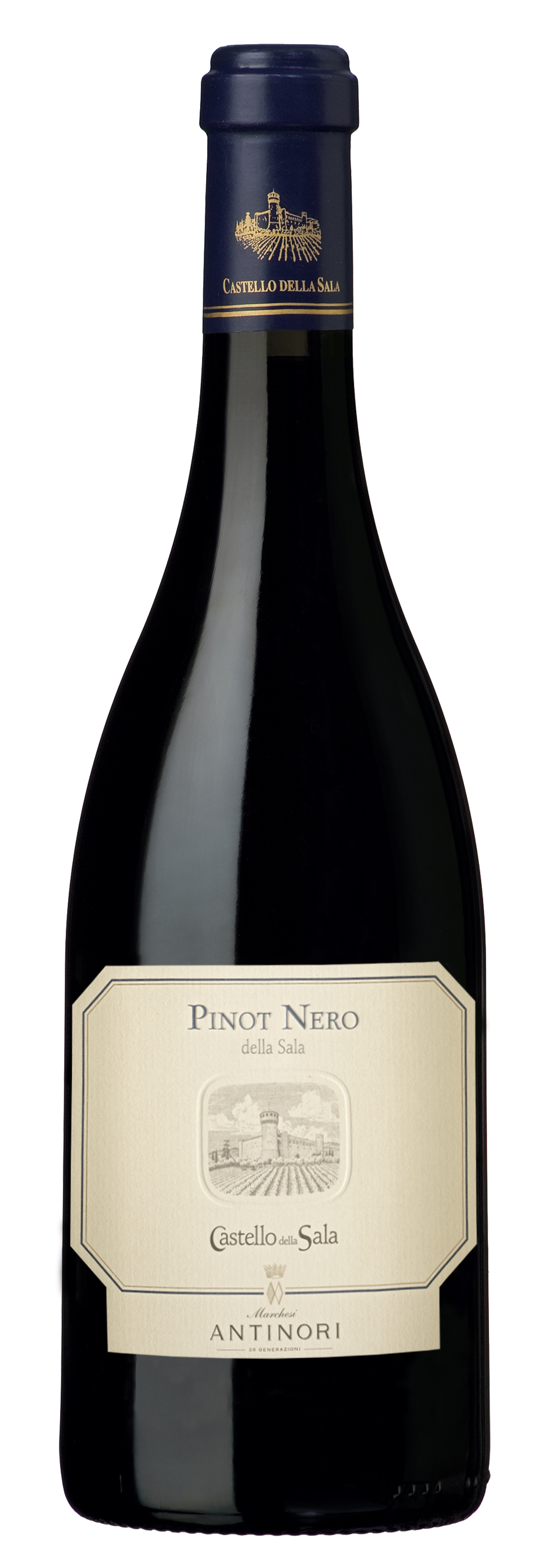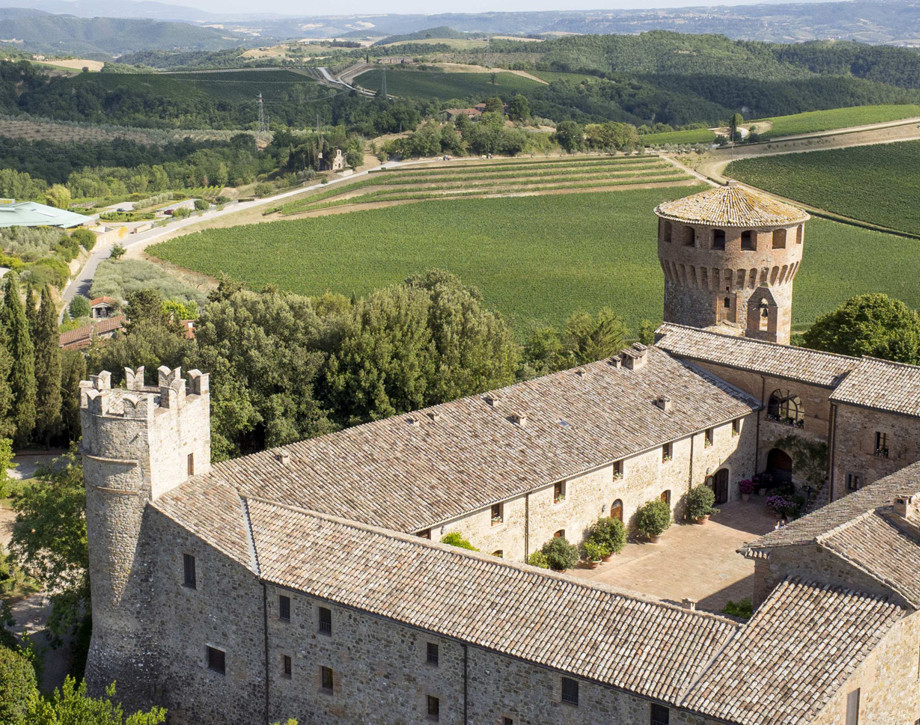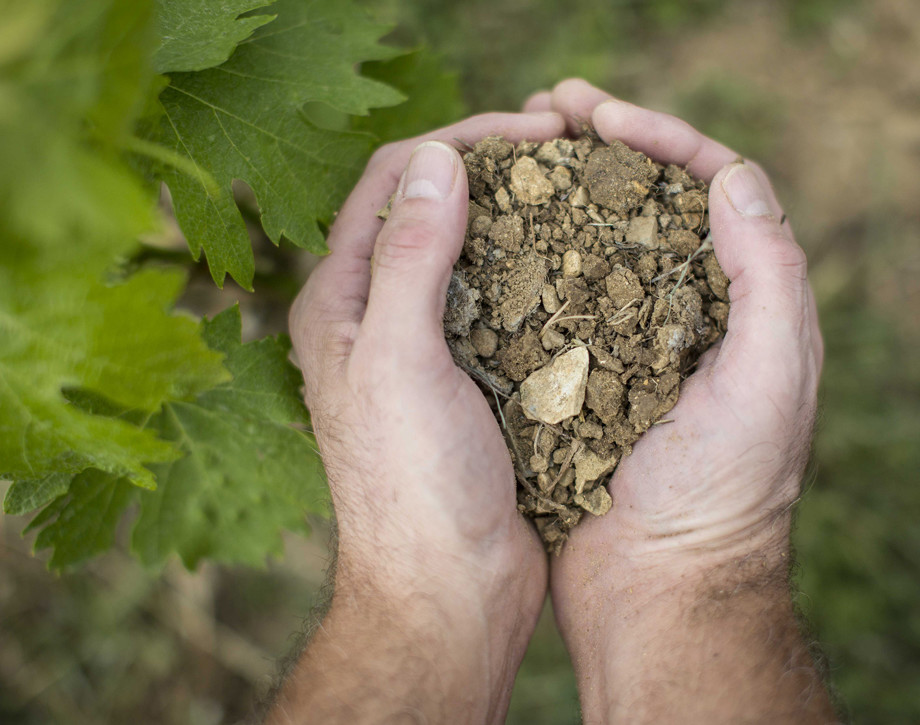Pinot Nero della Sala

The Wine
The first vintage to be produced was the 1990 vintage. The wine is made entirely with Pinot Nero grapes and is considered Cervaro’s alter ego: together they represent the two different expressions of Castello della Sala’s complex and refined spirit. Four hectares (10 acres) of Pinot Nero vineyards sit at an altitude of 400 meters (1312 feet) above sea level on calcareous soils rich in fossils with sedimentary sands from the Pliocene epoch.
Historical Data
The ten acres (four hectares) of Pinot Noir grapes at the Castello della Sala estate are situated at an altitude of over 1300 feet (400 meters) above sea level on calcareous soils rich in marine fossils which alternate with strata of sedimentary sands from the Pliocene epoch. The wine was first produced in 1990. Castello della Sala is a fortress erected in the 14th century located approximately ten miles (18 kilometers) from the city of Orvieto and was acquired by the Antinori family in 1940.

The Wine
The first vintage to be produced was the 1990 vintage. The wine is made entirely with Pinot Nero grapes and is considered Cervaro’s alter ego: together they represent the two different expressions of Castello della Sala’s complex and refined spirit. Four hectares (10 acres) of Pinot Nero vineyards sit at an altitude of 400 meters (1312 feet) above sea level on calcareous soils rich in fossils with sedimentary sands from the Pliocene epoch.

A red amidst whites
At Castello della Sala, an area historically important for white wines, Pinot Nero offers an authentic and typical expression of its variety with a strong territorial character.
Winding vineyards
The 4 hectares (10 acres) of Pinot Nero grow along the hillsides shaping the landscape into a series of sinuous terraced vineyards.
Understanding nature
The particularly hot climate of Castello della Sala has forced agronomists to invent new ways to protect the grapes from the hot summer sun. The vines’ shoots are allowed to grow in length and are then folded over the plant so its leaves can shade the Pinot Nero grape clusters.
Climate
We can define 2010 as essentially a cool vintage, one with a cold and rainy winter characterized by frequent drops in temperature followed by an irregular weather, especially from the second half of April until the end of June. There were twenty days of heavy rain which assisted the growth of vegetation in the vineyard despite another period of lower temperatures from May 10th to May 20th. The rains ceased during the last ten days of June and the entire month of July was marked by sunny and warm days which favored the color change in the grapes. August, a month which was cooler than seasonal averages, slowed down the ripening process and forced a postponement of the grape harvest by approximately ten days. The return of fine weather in September allowed picking operations to be organized in optimal fashion, an advantage due as well to the generally excellent vineyard work and canopy management, practices which, especially in difficult vintages such as this one, guarantee balanced grapes and quality wine.
Vinification
The grapes were harvested in vineyards at 400 meters (1325 feet) above sea level located the Castello della Sala estate, near the city of Orvieto in the central Italian region of Umbria. After destemming and a partial light crushing, the must was placed in stainless steel tanks where the period of skin contact, a week in length, was conducted with maximum attention to the extraction of coloring material and tannins. The fermentation was carried out at temperatures of 26° centigrade (80° Fahrenheit) and was finished in 60 gallon Allier and Tronçais oak barrels, where the wine went through a complete malolactic fermentation as well. The period of barrel aging lasted eight months, after which the wine was bottled. A further nine month period of bottle aging in the historic cellars of the Castello della Sala preceded commercial release .
Historical Data
The ten acres (four hectares) of Pinot Noir grapes at the Castello della Sala estate are situated at an altitude of over 1300 feet (400 meters) above sea level on calcareous soils rich in marine fossils which alternate with strata of sedimentary sands from the Pliocene epoch. The wine was first produced in 1990. Castello della Sala is a fortress erected in the 14th century located approximately ten miles (18 kilometers) from the city of Orvieto and was acquired by the Antinori family in 1940.
Tasting Notes
A brilliant garnet red in color with delicate aromas which range from fruit to spices, the wine is soft and savory with silky tannins which show a very important aging potential.
Scheda

Castello della Sala
Castello della Sala is located in the Umbria region, not far from the Tuscan border, about 18 kilometers from the historic city of Orvieto. The Medieval castle’s property extends over an area of 600 hectares (1482 acres), 229 hectares (495 acres) are planted with vineyards at an altitude that varies between 220 and 470 meters above sea level (722/1541 feet) on the gently rolling hillsides that characterize the beautiful countryside in this area. Castello della Sala is the perfect place for growing white varieties. The vines grow in clay and calcareous based soils, rich in fossil shells, and they are well exposed to the rising of the sun with an excellent difference of temperature between day and night. The one exception to the rule is Pinot Noir, the only red variety that has found in this area ideal growing conditions to best express its full potential.

Soil
Calcareous soil with fossils and sedimentary sand dating back to the Pliocene period.


















